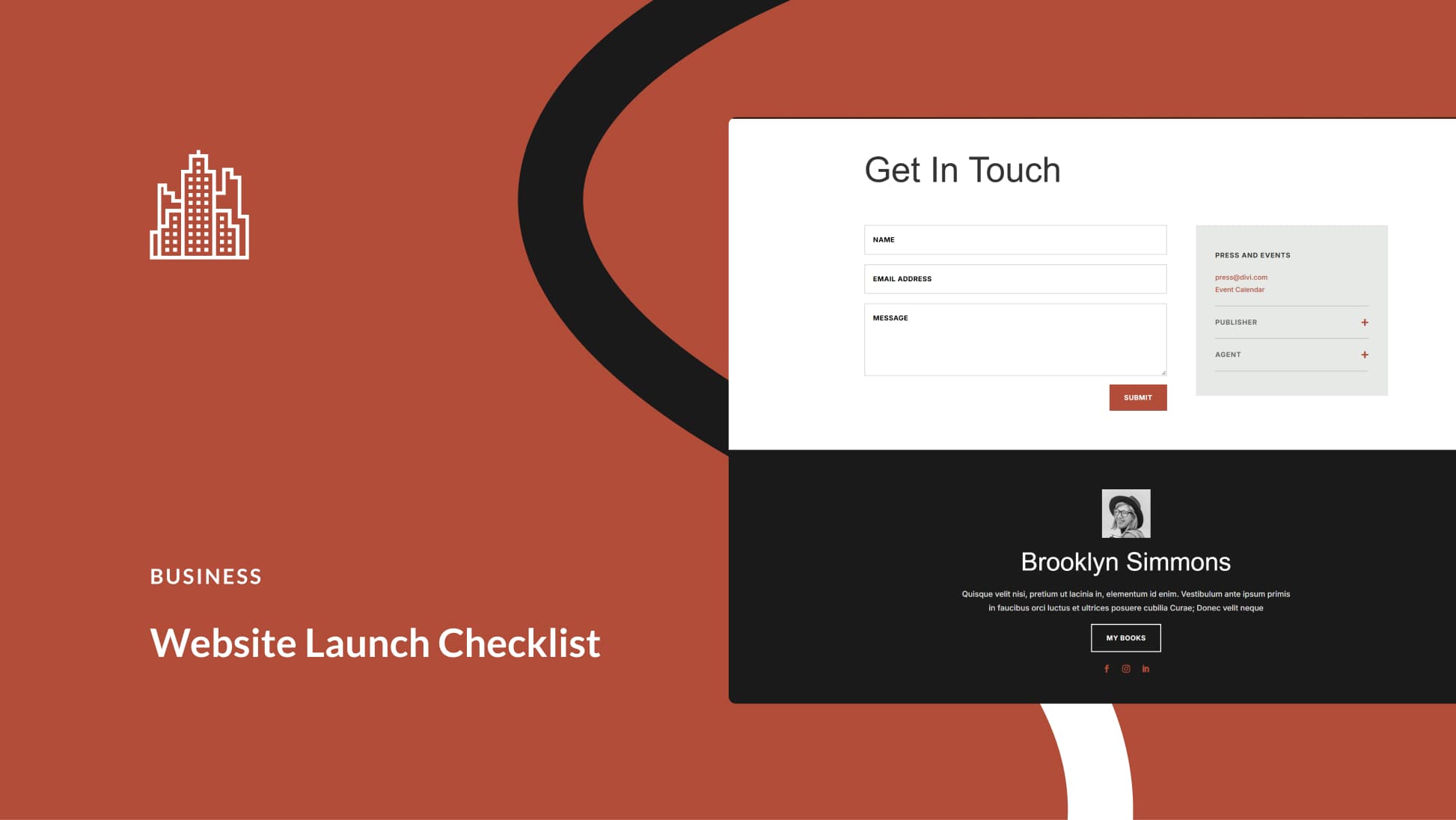Survivorship bias is when you focus on successful businesses, strategies or people for only their successes. You admire them and want to emulate the positives. You also completely ignore their drawbacks or failures, as well as the surrounding details of their achievements.
It’s like how people show only their highlight reel on Instagram. They feature everything they want you to think about them – how they look, where they go, what they eat. Social feeds present a tailored, filtered, unrealistic view of a life.
This is prevalent everywhere. Perhaps especially in business, entrepreneurship and startup culture.
The danger of course is that survivorship bias can hinder your judgement in areas that are extremely important to the success of your businesses. It may encourage you to follow new trends whether or not they’re on-brand. To copy those you admire instead of lead in a way that’s all your own.
Don’t fall for it.
- 1 Survivorship Bias in Business
-
2
Their way isn’t your way. Your way isn’t their way.
- 2.1 If I copy everything Brand X did, my brand will be just as successful.
- 2.2 Okay, but if I use the same landing page template they did, I’ll see the same 35% increase in conversions they had. (Or insert any stat you want.)
- 2.3 Fine. I have a better product anyway, so I’ll be more successful.
- 2.4 Well, my customers are happy because I haven’t heard that they aren’t.
- 3 Your Future Without Survivorship Bias
Survivorship Bias in Business
In the business world, survivorship bias is especially problematic. Successful outcomes are studied without looking at the circumstances as a whole. A company or individual succeeded, therefore they’re better, therefore you should replicate what they did.
Business Z only shines, though, because businesses A-Y shut down. Or Business Z shines now after 50 failures since launching.
Mistakes teach as many lessons as successes. Avoiding them does you a disservice. Plus, if you try and fail, you’ll feel like garbage because you assume you got the recipe wrong.
The College Dropout Misinterpretation
Talk to someone who wants to be the next Gates, Jobs or Zuckerberg and they’ll say, “You know, Bill, Steve and Mark were college dropouts.” Yawn.
They did not drop out and then immediately become successful. Some stuff happened in between. Without learning about their long and winding paths, you don’t learn anything. Plus, it’s been shown that occupational achievement is very much related to a college education.
I love this quote from investor David Cowan, from an interview with Scientific American:
“For garage-dwelling entrepreneurs to crack the 1% wealth threshold in America, their path almost always involves raising venture capital and then getting their start-up to an initial public offering (IPO) or a large acquisition by another company. If their garage is situated in Silicon Valley, they might get to pitch as many as 15 VCs, but VCs hear 200 pitches for every one we fund, so perhaps 1 in 13 start-ups get VC, and still they face long odds from there…So for every wealthy start-up founder, there are 100 other entrepreneurs who end up with only a cluttered garage.”
Your garage may end up cluttered, but at least the clutter can be your own. You can do so much more with your own trials and learning lessons than someone else’s.
Watch The Inventor: Out for Blood in Silicon Valley to see how people can get trapped in a flashy story. Elizabeth Holmes succeeded at emulating Steve Jobs. When it came to the cutting-edge medical product she convinced investors she’d developed, though, a “flop” is putting it nicely. By assuming success is found in swagger and turtlenecks, you overlook the required work.
Their way isn’t your way. Your way isn’t their way.
You can do everything the same way as a successful brand or individual and end up somewhere different. You can also do everything a different way and end up with their type of success. There’s a very specific variable to account for: you.
Also, their story may not be over yet. We don’t know what’s going to happen to Apple. Look at MySpace. Or MoviePass. What if everyone copied MoviePass when they were still successful?
Here are survivorship bias traps even the best of us fall into:
If I copy everything Brand X did, my brand will be just as successful.
It probably won’t. More businesses fail than succeed. The odds are not on your side. It’s nothing personal, and you’re not doing yourself any favors by avoiding reality.
A spin-off of this assumption is the untrue “I can do anything” exclamation. You can’t. You cannot do anything and everything you want to do.
One time, I asked a then-boyfriend what he would do if he could choose any career. He was unhappy with his job and a little lost. He answered immediately: “Football player.” I dragged out my “okaaay” and then said, “Right, but you didn’t become a football player, so…what else?” He said “football player” again, and then probably took a bite of pizza or something.
You know what he became? Not a football player, and also not anything that challenges, stretches or excites him.
I’m not saying “don’t strive because you’re unlikely to succeed.” I’m saying that survivorship bias is a liar, and there are many paths you can take to all sorts of successes. Find yours.
Okay, but if I use the same landing page template they did, I’ll see the same 35% increase in conversions they had. (Or insert any stat you want.)
One company finding one thing that works and gives them very specific results doesn’t mean much of anything for your company. A new idea for testing out a strategy of your own? Sure. A foolproof way to grow your business? There is none, so…no.
These types of case studies are so tempting and flashy that you can forget the obvious, like:
- Those results don’t matter to you. You care about other results.
- Your own strategy is pretty close to achieving those results already.
- You’re in a different stage of your business or a different industry.
- Brand X has a totally different audience.
- There could have been additional changes Brand X made to help get those results.
Fine. I have a better product anyway, so I’ll be more successful.
Wait 5 minutes – a competitor will launch a better, more successful product. It’s dangerous to think you’re the only or the best or the first or the last.
Think of something you use that others consider antiquated. I’ll tell you mine: I have a landline. That’s a landline phone for you kids out there. I also have a cell phone, but I could cancel my service and use it as a glorified computer and be totally fine. Landlines have more reliable service and better sound.
My point? It’s not that easy to gain customer loyalty, even if your product is much more awesome than the former.
Well, my customers are happy because I haven’t heard that they aren’t.
When survivorship bias extends into customer service, you’re in real trouble. If bad news isn’t in front of you, you may assume it doesn’t exist. First, stop believing that. Second, put the bad news in front of you. Get alerts when someone mentions your company, read threads on Reddit and Twitter, send out a survey… Face it so you can deal with it.
Your Future Without Survivorship Bias
Survivorship bias can throw you off course. It can make you think you have to find a new way to reach your goals, a way that other people have used and succeeded with in the past. It can also deflate your confidence and turn you into a less-successful clone.
My #1 tip is to choose which advice you take to heart.
Two years ago, I put so much pressure on myself to find the perfect morning routine that I dropped parts of my routine that I loved. If I started my mornings by reading in bed, I’d read something that said, “Workout first thing!” and feel like I was doing mornings wrong. Then, if I started my morning with a workout, I’d read how you should start with meditation. Again, I’d feel like a failure.
Instead of getting further from what made me happy, I stopped reading self-improvement articles. If I come across a title I can’t resist, I read with an open mind. I remind myself that these are suggestions that I’m free to take and try or leave behind.
Pick and choose what you take in. You’ll never get to the end of the advice. When it starts getting in the way, it’s time to step away from success articles and books. Nobody can tell you how to do this.
Second, put nobody on a pedestal, at least not without a lot of research first. Look at the circumstantial events surrounding the main event.
Third, accept that this might not work. Realizing you might fail empowers you to succeed. At the very least, you’ll have a shorter fall and an easier time picking yourself back up.
Think you’re in control? You’re not. But that’s okay. Check out my article about leaning into the illusion of control to smash business goals.









Great post, Lindsay. I really enjoy your upfront, personable, and “real” writing style… your posts are down-to-earth and never sugar coated, and I so appreciate that. 🙂
Thank you SO MUCH Lilly, that’s truly so nice to hear.
Reading your article is time well spent. Thanks for the content and clarity.
I went on to read your related article on The Illusion of Control as it relates to business decisions/goals. Another excellent perspective that applies to creative endeavor and to life in general, as well as to business development.
LINK to related article:
https://www.elegantthemes.com/blog/business/leaning-into-the-illusion-of-control-to-smash-business-goals
I’m so flattered, Tom, thanks so, so much for your kind words (and for reading).
What a smashing post!! Thank you for putting something resembling real business wisdom and frankly common sense out there. There’s just way too much BS out there.
Wow, thanks so much Kristin, what an awesome comment. You made my day!!!
I don’t often get the time to read these article but glad I did this morning.
I did only because I decided to take that moment instead of feeling guilty. I guess I am confirmation of what you wrote today!:-)
Thanks Lindsay
Woo hoo, that’s awesome Kayleen! And thanks SO MUCH for reading 🙂
I totally share you words. The one thing I always try to ask when I hear success stories is “What things went wrong along the way?” or “What wouldn’t you do if you could do it all over again?”.
There’s a world of difference between the ad and the actual hamburger 😉
Yesssss. GREAT analogy!
Thanks Lindsay for sharing. At the start I didn’t get the point with the landline mention, in my country it doesn’t have that quality.
Good read, thanks Lindsay. 🙂
Thank you!!!
Excellent post. So much is focused on SEO and not the big picture.
Thanks so much for your comment, Chris, and for reading!
Very good read Lindsay, very good article. Thank you,
Thanks so much, Aaron!